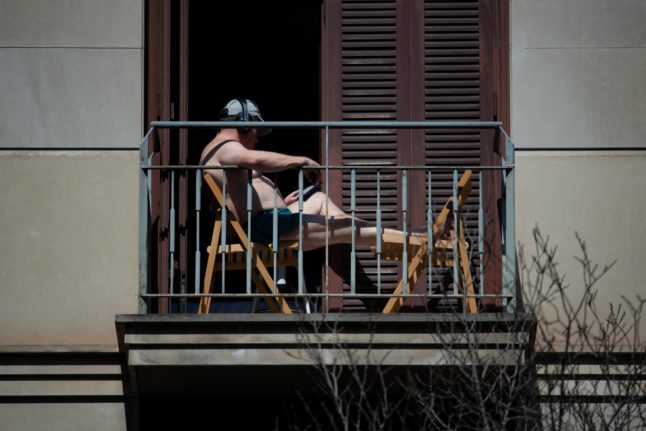Winter colds and flu are common, but this year Spain has seen a spike in cases of three different viruses – flu, Covid and bronchitis at the same time.
This comes after the festive and New Year period with lots of family gatherings and meetings with friends without much thought for social distancing days of the pandemic.
Rise in cases
According to health services, there are 35 percent more cases of these infections than a year ago, a percentage that is expected to continue rising until the third week of January when the epidemic peak will be reached after more gatherings for Three Kings’ Day on January 5th and 6th.
In a period of seven days, the rates of flu have gone from 532 to 908 cases per 100,000 inhabitants. The cases of Covid have also grown from 12.6 percent to 13.6 percent.
The Health Minister, Monica García has published a message on social media reminding the public of the importance of getting vaccinated and maintaining prevention measures, such as ventilating rooms, washing hands and wearing a mask.
Ante el repunte estacional de virus respiratorios, recordamos la importancia de la vacunación y las medidas preventivas. Ventilación, higiene y mascarilla. Permitir ausencias a trabajadores con síntomas para cuidar la salud de todos. Y reforzar a los profesionales en las CC.AA.
— Mónica García (@Monica_Garcia_G) January 3, 2024
The head of the Emergency Department at the Reina Sofía University Hospital in Murcia, explained that the profile of these patients ranges “from young people with flu pathologies who go to the emergency room because health centres have delayed their appointments and people over 80 years old with pneumonia due to the flu who end up being admitted”.
Lack of hospital beds
According to the first vice president of the Spanish Society of Emergency Medicine (SEMES), Pascual Piñera, 10 of patients with these infections end up admitted to hospital overnight and one of the biggest problems staff are facing is the severe lack of beds, “They have nowhere to put the sick”, he explained.
The situation is the same all over the country. Red Workers union of the La Paz University Hospital in Madrid has reported that there are 105 patients pending admission and beds in the hallways are in double rows, “which cannot be evacuated if the patient worsens or there is a fire”.
Delays in primary health care
Acute respiratory infections not only put a strain on hospitals and emergency rooms, but also primary care centres, causing delays and long waiting times for appointments.
The spokesperson for the Federation of Associations for the Defence of Public Health (FADSP), Marciano Sánchez Bayle, explains that it is generating a “major traffic jam” in the healthcare system “where appointments are made for very late dates”.
Sánchez Bayle cites the case of the Community of Madrid, where he knows that appointments requested in December were not given until the end of January “which further clogs an already saturated system”.
The need for greater vaccination rates
Besides the festive period, many health professionals believe that the situation could be improved if more people were getting vaccinated, specifically against the flu.
Flu vaccination in Spain is far below the WHO recommendations, hovering around 50 percent of the population at risk, when the goal is 75 percent. And the percentage is even lower in the case of children under five.
According to the Ministry of Health, the objectives for vaccination against flu and Covid-19 for the 2023-2024 season are to achieve or exceed vaccination coverage of 75 percent in older people and health workers, as well as 60 percent for pregnant women and people with at-risk conditions.
Amós García Rojas from Spain’s Vaccinology Association believes that after a few years without flu during the Covid pandemic, society has relaxed.
The vaccination campaign has not yet ended, so there’s still time to get yours before the end of the season. The campaign began on October 15th and ends on January 31st.



 Please whitelist us to continue reading.
Please whitelist us to continue reading.
Member comments